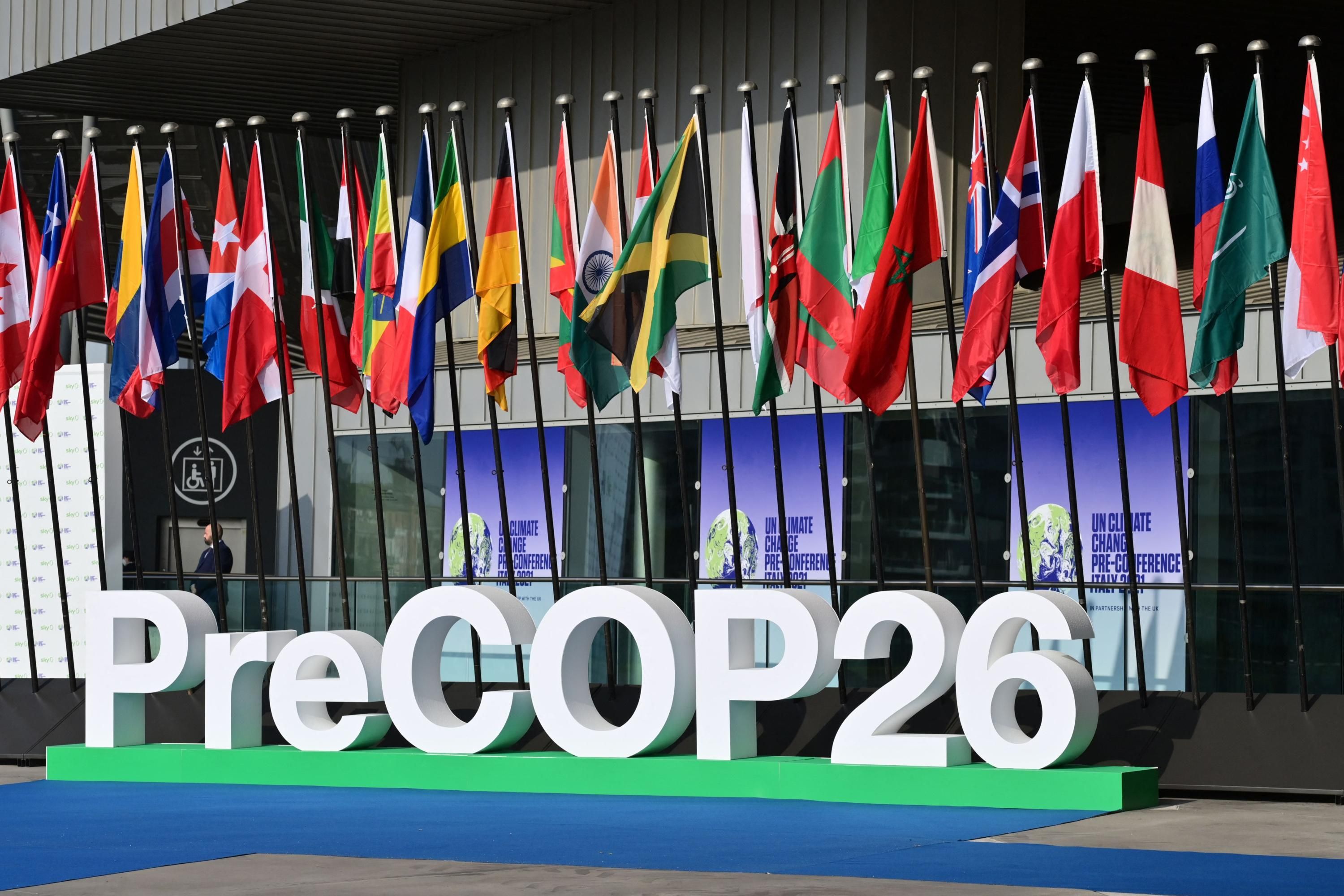
Last month, the journal Nature published a paper calculating what this means. “To allow for a 50% probability of limiting warming to 1.5°C… by 2050, we find that nearly 60% of oil and fossil methane gas, and 90% of coal must remain unextracted,” the authors conclude. If we want better than a 50% chance, we must burn less.
Berlin’s Mercator Research Institute puts it another way. If we are to remain within the 1.5°C target, it says, “The atmosphere can absorb… no more than 400 gigatonnes of CO2 … Annual emissions of CO2 are estimated to be 42.2 gigatonnes per year. With emissions at a constant level, the budget would be expected to be used up in less than eight years from now.”
At the 2009 climate conference in Copenhagen, countries in the Global South rallied under the banner “1.5 to survive”. The conditions created by any more warming than this, they pointed out, would likely leave much of their territory uninhabitable.
At the 2015 conference in Paris it was finally agreed that the world should be allowed to warm by no more than 1.5°C above pre-industrial levels. As world leaders meet in Glasgow, they have to figure out how to meet that target in less time than it took them to set it.
Rather than engaging seriously with this task, Boris Johnson, the conference’s bombastic host, is likely to use it as a global ego-booster. The combination of Brexit cock-ups and one of the worst COVID responses in the world has left him looking like a bit of an eejit, and while he enjoys the role of jester, he doesn’t like being seen as stupid. Here is a chance to do what he does best: pompously blaming other people to get his mates off the hook.
Just as Johnson’s enthusiasm for technological solutions to climate change matches his excitement about technological solutions to the Irish border, he will be as quick to blame other countries for the climate crisis as he was to blame them for his Brexit mess. In particular, it seems likely he will try to imply that this is all China’s fault, and to cast Britain as an eco-Utopia.
It’s important, therefore, to understand the extraordinary extent to which Britain has caused this crisis.
Britain and blame
The UK can seem like a progressive voice on climate change, having committed itself to a 68% reduction in greenhouse gas emissions by 2030 against 1990 levels.
The first problem is that the government has no serious plans to meet those targets. The second is that they count Britain’s responsibility in the narrowest possible way.
Indeed, the UK is arguably more to blame for the climate crisis than any other country.
For his 2011 book ‘The No Nonsense Guide to Climate Change’, the researcher Danny Chivers dug back through historic emissions data and compared them to current population levels. Between 1850 and 2007, he found, the UK was responsible for more CO2 from fossil fuels per person than any other major country. The only country with a higher historic per-person carbon footprint was Luxembourg.
A decade on, Chivers re-ran the numbers for me. “Every UK resident is sitting on around 1,200 tonnes of historical CO2, making us one of the most historically polluting countries per person in the world,” he said. Out of countries responsible for more than 1% of emissions, “We’re jostling for the top spot on the historic responsibility table with a similar per capita figure as the US, compared with 150 historic tonnes per person for China, and 40 tonnes per person for India.”
The infrastructure and relative wealth we enjoy in the UK has been built on huge amounts of past pollution—much of which is still in the atmosphere today.
These figures only account for emissions rising up from the UK’s land mass. If a British company designs a product in the UK, sells it in the UK and counts its profits in the UK, but offshores its manufacture to Vietnam, then its emissions are counted in Vietnam. And because the UK is one of the world’s most de-industrialised countries, this offshoring of emissions means that Britain undercounts its carbon footprint more than most other countries.
A report for WWF last year, for example, argued that around half—46%—of the UK’s emissions come from products made overseas to satisfy demand in the UK.
COP26: Industrial Capitalism and How the UK Started the Climate Crisis
Source: Articles Viral Post
0 Comments